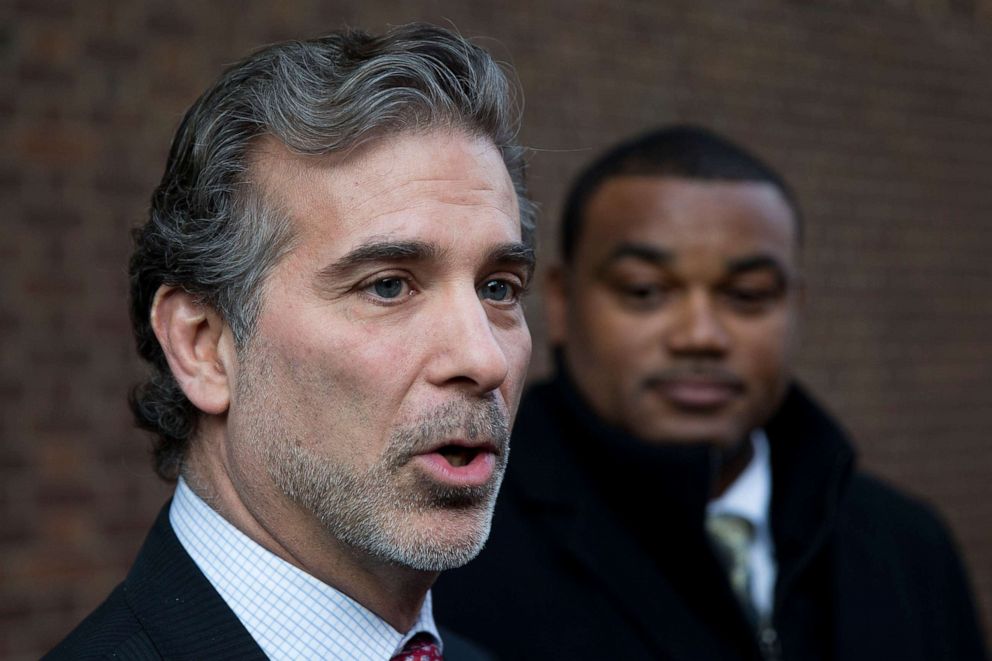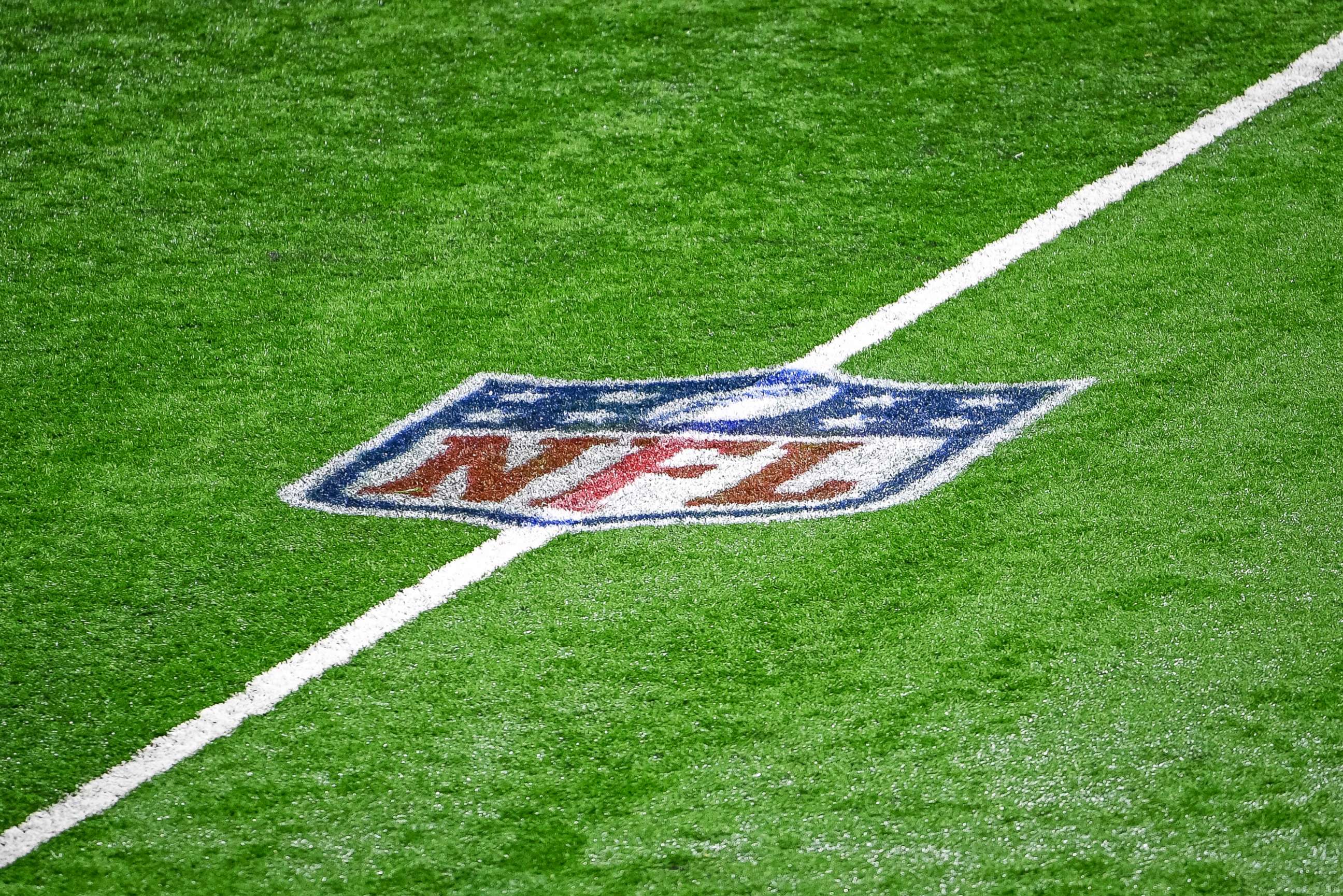Former NFL players seek to intervene in race-norming mediation, citing mistrust of class counsel
Players allege that a discriminatory system has emerged under the settlement.
Former NFL players Kevin Henry and Najeh Davenport are seeking to intervene in the upcoming court-ordered mediation between the NFL and the class counsel representing former players in the league's landmark concussion settlement program, arguing that class counsel "cannot adequately represent the interests of Black former players on the issue."
In a motion filed before the U.S. District Court for the Eastern District of Pennsylvania on Monday, attorneys for Henry and Davenport took aim at Seeger Weiss, the prominent plaintiffs' law firm that negotiated the terms of the original settlement, alleging that "the discriminatory status quo has emerged and persisted on Class Counsel's watch."
"Class Counsel Seeger Weiss cannot be solely entrusted with eradicating a discriminatory practice that it has had a role in effectuating, has allowed to continue, and does not view as discriminatory," wrote the attorneys, led by Cy Smith of the firm Zuckerman Spaeder.
In response to questions from ABC News, a spokesperson for attorney Christopher Seeger, one of the firm's leading partners, issued a brief statement.
"I invited Zuckerman Spaeder to join me in the mediation and in advance shared with them an update on our investigation," Seeger said. "They then proceeded to share this confidential information with the NFL, undermining the negotiation to the detriment of former players."
Seeger declined, through a spokesperson, to offer any additional context to that allegation or to the status of the investigation.
"My focus is on reassuring former players that they will be treated fairly and equally in the settlement program, and I believe eliminating these race-based demographic adjustments is the best way to accomplish that," Seeger added. "All interested parties will have an opportunity to review and comment on the proposal once it is filed with the court."
Smith denied that such an episode had taken place.
"We flatly deny that anything like that ever happened," Smith responded. "More important, we appreciate that Mr. Seeger recognizes that Black former players need an independent voice at the mediation. We gladly accept his offer to join, and expect that he will support our request to intervene. It is our collective duty in zealously representing players to eradicate all discrimination that resulted from race-norming in the past and to prevent it in the future. Anything less would be a failure. We are available at any time and any place to work with Class Counsel, the NFL and the Court toward resolving this festering problem."

Last week, following an ABC News investigation into allegations of racial bias in the program, the federal judge overseeing the settlement sent the league and Seeger Weiss back to the negotiating table "to seek to address the concerns relating to the race-norming issue" that critics say has skewed compensation for some football-related head injuries along racial lines.
The NFL has consistently defended the settlement and its protocols, and in response to questions from ABC News, Seeger initially issued a statement saying that his firm had previously "investigated this issue" and "not seen any evidence of racial bias in the settlement program." The following day, however, Seeger added that it was his view that "race-based demographic adjustments should be eliminated" from the settlement program, and he pledged to "fight for the rights of Black players to have [their] claims rescored" if improper adjustments were found to applied.
In Monday's filing, Smith seized on the apparent discrepancy.
"It is not realistic," Smith wrote, "to expect that concerns about race-norming will be addressed effectively by parties who do not view the current use of race-norming as a problem."
Seeger has also been a target of the group of wives of former players who have organized their own effort to end race-norming in the concussion settlement program. The group, which launched a Change.org petition that has garnered nearly 50,000 signatures, has urged the judge overseeing the settlement to remove Seeger as class counsel.
"We demand that you choose an impartial attorney of record, one that will fight for the rights of ALL players, not just the NFL and their deep pockets," they wrote.
Seeger's spokesperson has not responded to ABC News' multiple requests for Seeger to discuss his position regarding the mediation in an on-camera interview.

At the crux of the controversy: The NFL's concussion settlement program manual recommends the use of a "full demographic correction," in which a player's cognitive test scores are compared to average scores, or "norms," for supposedly similar demographic groups, and then adjusted to account for expected differences in age, gender, education -- and race.
The practice of adjusting test scores for race, widely known as "race-norming," is in use across several different medical fields as a supposed safeguard against misdiagnosis. But because these "norms," as used in a neuropsychology context, assume that the average Black player starts at a lower level of cognitive functioning than the average white player at the outset of their careers, Black players need to show larger cognitive declines than white players to qualify for compensation.
"What the NFL is doing to us right now ... when they use a different scale for African-Americans versus any other race?" former NFL running back Davenport told ABC News. "That's literally the definition of systematic racism."
In response to questions from ABC News, an NFL spokesperson issued a statement in February saying that the concussion settlement, which has paid out more than $800 million to retirees and their families to date, was "agreed to by all parties, with the assistance of expert neuropsychological clinicians and approved by the courts more than five years ago" and "relied on widely accepted and long-established cognitive tests and scoring methodologies."
"The settlement seeks to provide accurate examinations to retired players," said the spokesperson, "and thus permits, but does not require, independent clinicians to consider race in adjusting retired players' test scores as they would in their typical practice."
But ABC News uncovered emails between clinicians who evaluated former NFL players for compensation through the program in which they contend they were all but required to apply race-based adjustments to players' cognitive test scores and express concerns that the league's protocols discriminate against Black players. ABC News was also able to obtain a data analysis that suggests that the impact of the practice on payouts could be significant, making it much more difficult for Black players to qualify.
In Monday's filing, attorneys for Henry and Davenport claim the NFL and Seeger Weiss were presented with evidence "at least as early as November 2018" of the discriminatory impact of race-norming in the settlement program, but neither of them "has lifted a finger" to address it since.
And, the attorneys argued, it was the lawsuit filed by Henry and Davenport this past August, which the judge recently dismissed as "an improper attack on the Settlement Agreement," that alerted the court to the issue in the first place.
"If [Henry and Davenport] had not begun litigating the race-norming issue, Class Counsel and the NFL would never had brought it to the Court's attention," the attorneys wrote. "[Henry and Davenport] should be allowed to participate as parties to ensure that the NFL and Class Counsel address the Court's concerns fairly and comprehensively."
Editor's note: This story has been updated to reflect new developments.




